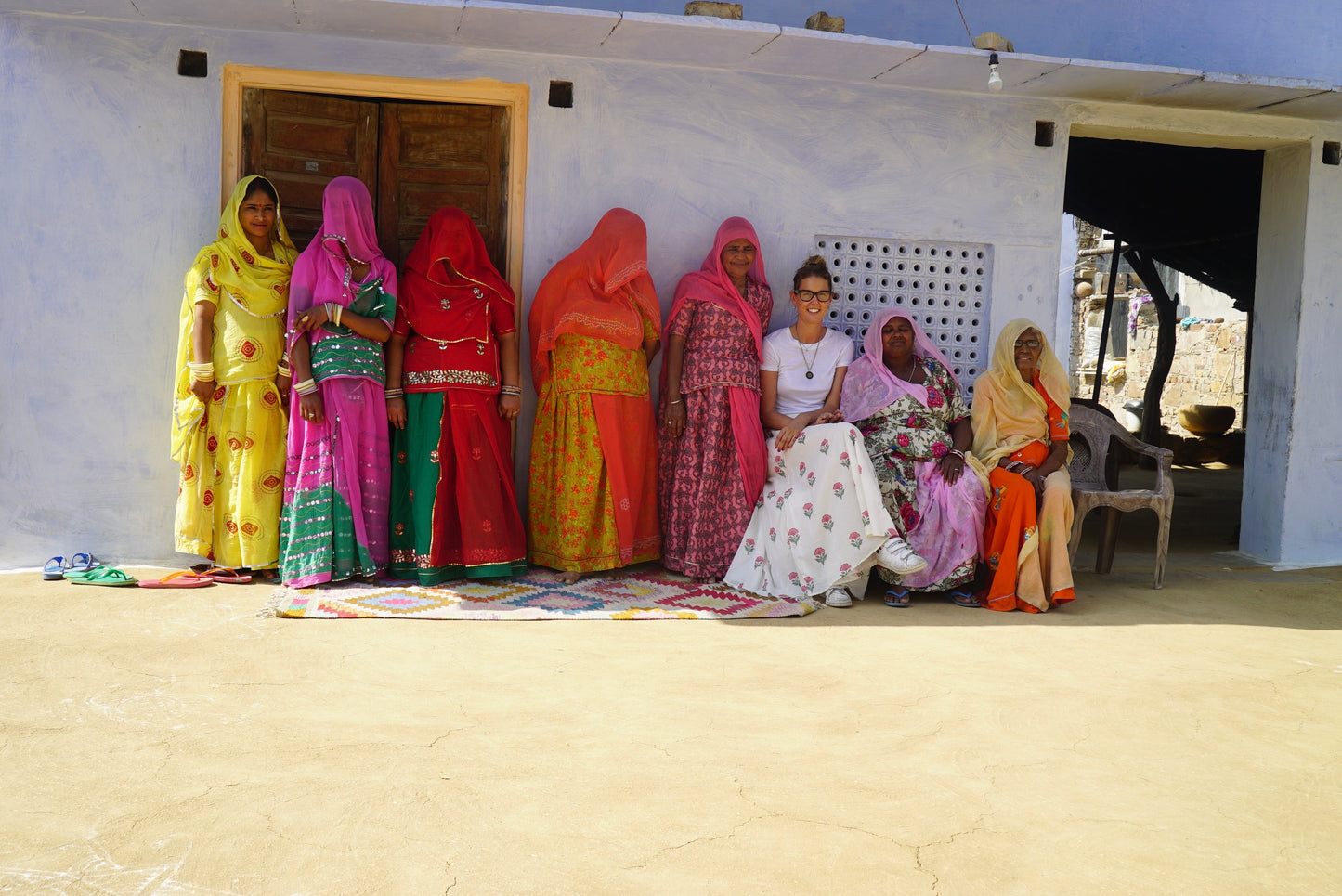
Last week, a British company specialising in sustainability audited my business and informed me that I hadn’t met their ‘environmental and social standards’ to be labeled as ‘sustainable.’ At first, this caught me off guard, but it also sparked important conversations that I want to share.
For me, sustainability is multifaceted and goes beyond a single aspect. It involves considering the choice of fibre and fabric, production processes, water usage, emissions, waste, social and cultural context, and ethical practices.
Today I wanted to look at ethical standards as this is one of the reasons I did not pass. I’ve been talking to different factories, designers, production managers, printers, and artisans, and one thing seems clear: ethical standards aren’t a one-size-fits-all approach. It’s a complex, nuanced issue.
From my experience working in Jaipur, I’ve learned that culture, craft, and local resources play a huge role. I’m fully committed to fair wages, proper working hours, paid sick leave, and, of course, no child labor. But what’s needed in a large garment factory may not always fit the way things work in a small printing studio or a hand embroidery village in rural Rajasthan. The rhythm of village life and the needs of artisans are different. For example, holidays often revolve around local festivals and traditions, not rigid vacation schedules. Working in Rajasthan’s craft sector requires flexibility and understanding of the local context rather than applying uniform standards across the board.

I work with a range of partners in Jaipur, from small artisan workshops to larger certified factories. While the bigger factories are certified and regularly audited, even they find the system challenging at times. For example, being required to provide uniforms and slippers that no one wants to wear can feel like a waste of time and resources.
I’m not suggesting that certification isn’t important or beneficial in many cases, but for smaller artisan-led factories, the high cost—around 1.5 lakh per year—can be hard to justify. Vishnu, who runs the main factory I work with, is one of those people. I met him six years ago, when he didn’t have any international clients. Now, I’m just one of many. Initially, the lack of international clients gave me pause, but I was immediately struck by his kind nature and the way he runs his business.

I’m fortunate to spend a lot of time in the country where my products are made, which allows me to visit the factory at least once or twice a week when I’m in Jaipur. I’ve been working with Vishnu for six years, and I’ve seen firsthand how he treats his employees, the holidays they take, and the hours they work. And despite spending time at the factory, other than my own daughter, I’ve never seen a child there!
So this raises an important question: should we limit our partnerships to fully certified factories to meet certain western standards? Wouldn’t that exclude smaller workshops that are genuinely committed to doing good? And what does this mean for artisan crafts, where applying Western ethical standards might not align with local cultures and practices?


